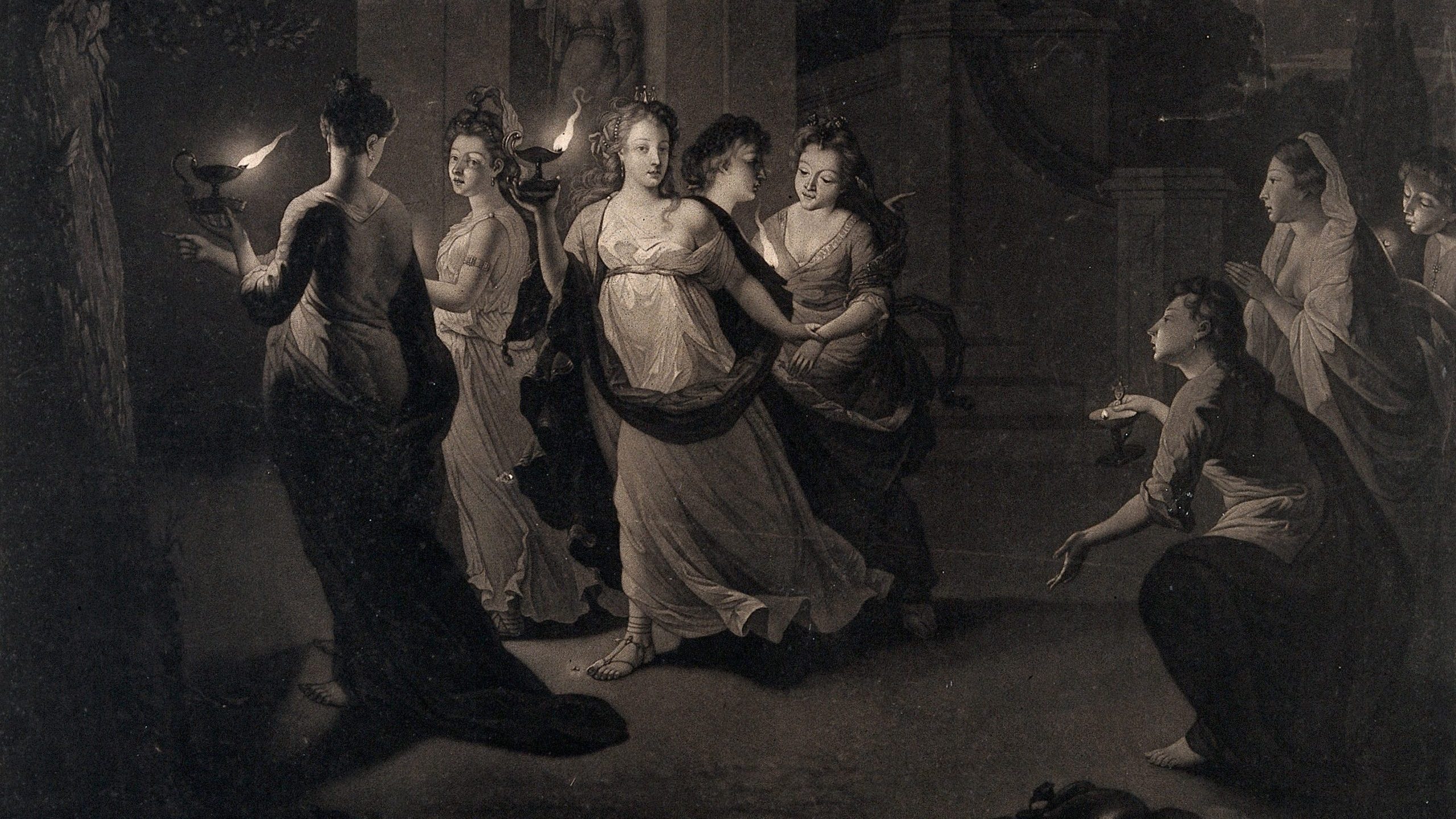Fueling Your Faith
Why the Wise Virgins Couldn’t Share Their Oil
I was scrolling through my Facebook newsfeed while waiting for my coffee to brew this morning and came across a thought-provoking post on this Sunday’s gospel by a woman who writes under the name “the Catholic Pilgrim.” She asks the very good question, why didn’t the wise virgins share their oil?
In the parable from Matthew 25:1-13, we are told that the foolish virgins, who brought no oil for their lamps, ask the wise virgins, who have plenty of oil, “Give us some of your oil, for our lamps are going out.” The wise virgins refuse, saying, “There may not be enough for us and you. Go to the merchants and buy some for yourselves.” It is clear from the context of the parable that Jesus wants us to be like the wise virgins, not the foolish ones. But aren’t the wise virgins being a bit rude here? Isn’t it selfish of them not to share?
If this were a literal story, then yes, we would be right in saying that. But this is not a literal story. This is a parable. Parables meant to convey a deeper truth than the literal words indicate.
The deeper truth taught in this parable is that we do not know the day or hour when Christ, our Divine Bridegroom, may appear to escort us to the heavenly Wedding Feast. None of us knows the time of our own death. Therefore we should always be prepared. The wise virgins were prepared by having oil for their lamps. The foolish ones were not.
The reason why the wise virgins couldn’t share their oil is because their oil isn’t oil. Their oil is their faith. Our faith is what prepares us for the day of our judgment and the coming of Christ. And you cannot share your faith.
But wait – don’t we talk about sharing the faith all the time? Isn’t that the work of the great commission, to go and make disciples? Isn’t it our Christian duty to share the gospel. Yes, to all of the above. But that’s sharing “the faith,” as in the content of the faith. And there is a difference. The Catholic Pilgrim explains:
When Christ comes, I can’t give you my faith, my hope, my love for God. I just can’t. I can share the knowledge of Christ with you, but unless you are willing to make it your own, there is nothing I can do to help you when you met Christ, the bridegroom.
The Catholic Pilgrim
I can teach you about Christ. I can preach the gospel. I can explain the doctrines of the Church. But I cannot make you love God, and in the end, that’s what matters. That’s the oil that fuels our lamps.
The lesson of the parable of the wise and foolish virgins is that we need to make sure our lamps don’t run out of oil. We don’t want to find ourselves with empty fuel reserves when the Lord comes to meet us. How do we do that, especially when it’s so easy to become distracted by the concerns of this world, and so easy to forget about God?
While the virtue of faith is an interior disposition, there are some practical things we can do to help foster it.
- Pray
- Read the Scriptures
- Go to Mass
- Go to Confession
- Receive the Eucharist
- Forgive others
- Do the corporal and spiritual works of mercy
- Read the writings of the saints
- Use sacramentals – things like sacred art, holy water, candles and incense – to fill your daily life with reminders of holy things.
None of the above is complicated. We just have to be mindful of doing them. That’s how we stay prepared. Because at the end of the day, our lamps can’t be fueled by someone else’s oil.

